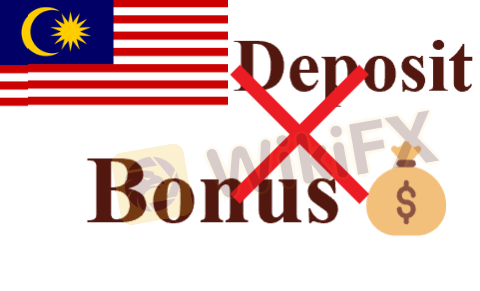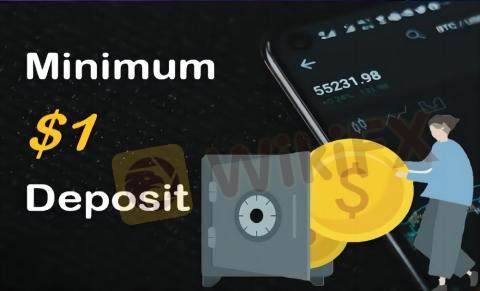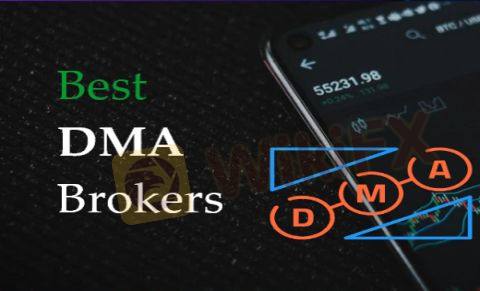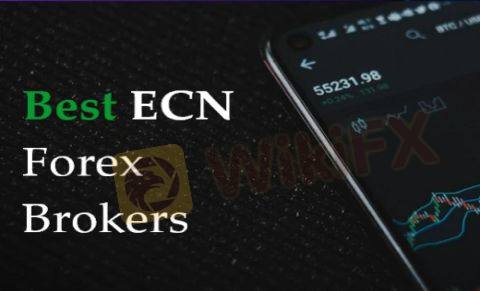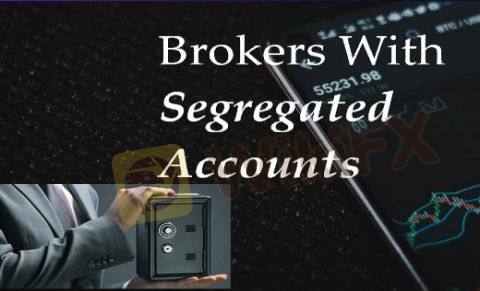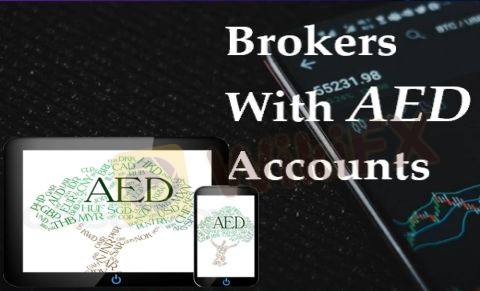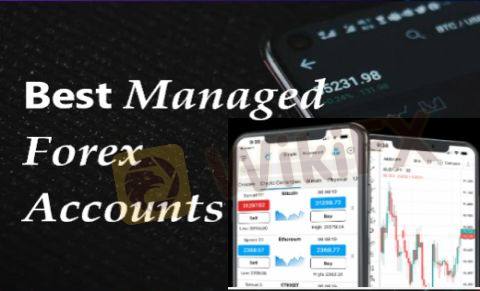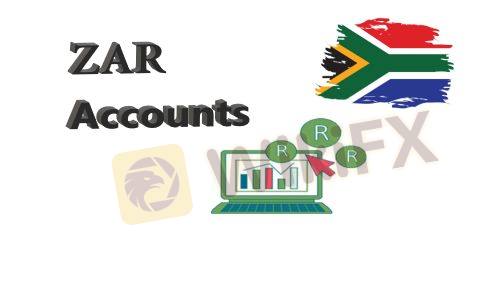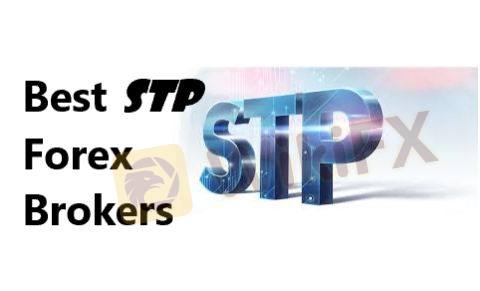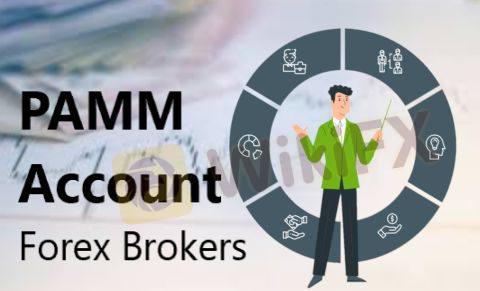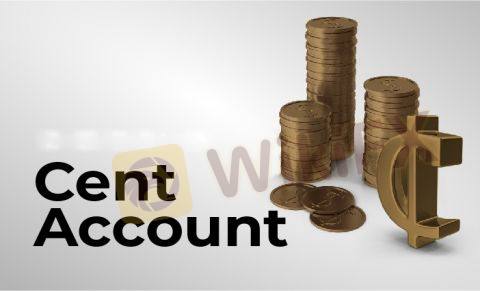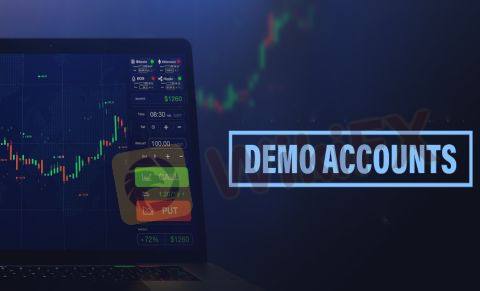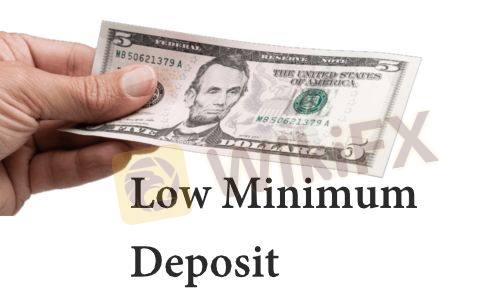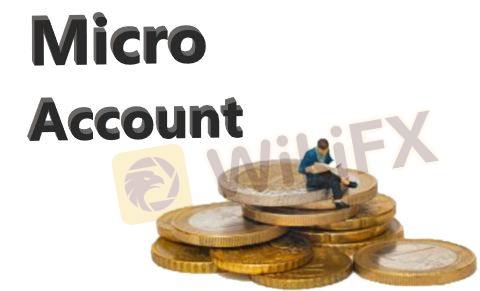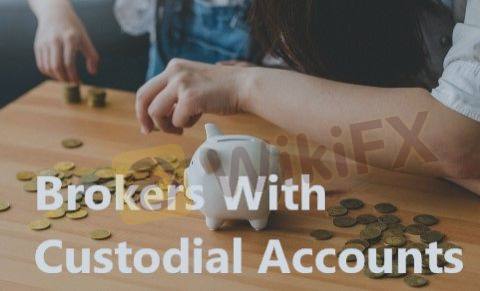A micro account is a popular type of account used by investors (primarily retail traders) to gain access to the forex market and learn to trade forex in a very short period of time. Mini and Standard accounts are the other two types. Micro lots allow you to trade for a small portion of a standard lot, typically, a micro lot equaling 0.01 of a standard lot size. With this in mind, it would cost $100,000 to trade a standard lot on any of the forex currency pairs with 1:1 leverage, whereas a micro lot would cost $1,000. Therefore, it would indeed be wise for you to explore the possibility of micro accounts before you choose to take a plunge into big money trading. This is where we provide you with a list of the Best Micro Account Forex Brokers. All the forex trading brokers you will find on this list are set up to allow you to trade in micro-lots, which are 0.01 of a standard lot. The best part about this is that there are several different options to consider if you are trying to find a suitable way to trade within a low-risk environment.
7 Best Micro Account Forex Brokers
Prominent platforms including MT4 and MT5, in addition to its proprietary app.
Rich educational resources are provided, with support available 24/7 in over 30 languages.
Transparency and an exceptional commission-based Forex pricing environment.
Trading platforms MT4/MT5 and a custom mobile app have been upgraded.
Spreads that compete with the market reduce trading expenses while increasing returns.
Leading international regulators licence and regulate traders, ensuring financial security.
more
Best Micro Account Forex Brokers Video
Comparison of the Best Micro Account Forex Brokers
Forex Broker
License
Minimum Spread
Maximum Leverage
Minimum Deposit
Open account
Details
Compare
7 Best Micro Account Forex Brokers Overall

| Regulated Country | Regulated Authority | Regulated Entity | License Type | License Number |
 |
ASIC | TRADING POINT OF FINANCIAL INSTRUMENTS PTY LTD | Market Making(MM) | 443670 |
 |
CYSEC | Trading Point Of Financial Instruments Ltd | Market Making(MM) | 120/10 |
 |
FSC | XM GLOBAL LIMITED | Retail Forex License | 000261/397 |
 |
DFSA | Trading Point MENA Limited | Retail Forex License | F003484 |
XM was established in 2009 and is a CFD and forex broker operating online. With its headquarters in Cyprus and under the watchful eye of the Cyprus Securities and Exchange Commission (CySEC), this firm is a respected member of the brokerage community. XM provides trading services to customers all around the world and provides access to a wide variety of trading instruments, such as foreign exchange, commodities, equities, and indices.
Here are some details about XM' s Micro account:
Base Currency Options: USD, EUR, JPY
Miminum Deposit: $5
Spreads: As low as 1 pip
Commission: No
Lverage: up to 1:1000

| Regulated Country | Regulated Authority | Regulated Entity | License Type | License Number |
 |
CYSEC | Forextime Ltd | Market Making(MM) | 185/12 |
 |
FCA | Exinity UK Ltd | Straight Through Processing(STP) | 777911 |
 |
FSC | EXINITY LIMITED | Retail Forex License | C113012295 |
FXTM is a reputable global online brokerage that operates under the regulation of multiple jurisdictions worldwide, such as the UK, Cyprus, South Africa, and Mauritius. Established in 2011 in Limassol, Cyprus, FXTM has experienced significant growth and currently caters to over 2 million accounts in over 180 countries. FXTM offers a wide range of tradable instruments, giving retail traders, institutions, and introducers access to over 250 options. These include forex, stocks, indices, commodities, cryptocurrencies, and ETFs. Take advantage of leverage up to 1:1000, enjoy competitive spreads, and experience fast execution on the popular MetaTrader 4 and MetaTrader 5 platforms. FXTM is known for its dedication to educating traders, providing customer support in multiple languages, and offering a wide range of trading resources to empower traders with the confidence to trade. FXTM has established itself as a reputable global broker in just ten years of operation, thanks to its transparent pricing, tight spreads, and advanced trading tools.
Here are some details about FXTM ' s Micro account:
Miminum Deposit: $/€/£ 10, ₦10,000
Spreads: From 1.5 pips
Commission: No
Trading Instruments: FX, Metals, Commodities

| Regulated Country | Regulated Authority | Regulated Entity | License Type | License Number |
 |
FCA | Exness (UK) Ltd | Market Making(MM) | 730729a |
 |
CYSEC | Exness (Cy) Ltd | Market Making(MM) | 178/12 |
 |
FSCA | EXNESS ZA (PTY) LTD | Retail Forex License | 51024 |
 |
FSA | Exness (SC) Ltd | Retail Forex License | SD025 |
Exness is an online forex and CFD broker that was established in 2008. Registered in Cyprus, this company has expanded its reach to become a well-known brokerage firm, providing trading services to clients around the world. Exness is renowned for its intuitive trading platforms and extensive selection of financial instruments, which have made it a favoured option for traders in the foreign exchange and financial markets.
Here are some details about Exness' s Micro account:
Miminum Deposit: Depends on payment system, tpically $10
Spreads: From 0.2 pips
Commission: No
Trading Instruments: Forex, metals, Cryptocurrencies, Energies, Stocks, Indices

| Regulated Country | Regulated Authority | Regulated Entity | License Type | License Number |
 |
CYSEC | Tradestone Limited | Market Making(MM) | 331/17 |
 |
FSC | Retail Forex License | Retail Forex License | IFSC/60/230/TS/17 |
FBS was established in 2009 as a global broker for foreign exchange and CFDs. The IFSC of Belize and the CySEC of Cyprus oversee its operations. Foreign exchange, commodities, indices, equities, and digital currencies are all available through FBS's trading platform.FBS is well-liked by traders because to its flexible account options, swift trade processing, and cheap spreads. The broker's micro accounts require only a dollar, making them attractive to novice traders.
Here are some details about FBS' s Cent account:
Miminum Deposit: $5
Spreads: From 0.7 pips
Commission: No
Leverage: 1:1000

| Regulated Country | Regulated Authority | Regulated Entity | License Type | License Number |
 |
CYSEC | HF Markets (Europe) Ltd | Market Making(MM) | 183/12 |
 |
FCA | HF Markets (UK) Limited | Straight Through Processing(STP) | 801701 |
 |
DFSA | HF Markets (DIFC) Limited | Retail Forex License | F004885 |
 |
FSA | HF Markets (Seychelles) Ltd | Retail Forex License | SD015 |
 |
CNMV | HF MARKETS (EUROPE) LTD | Retail Forex License | 3427 |
HFM (formerly HotForex) was launched in 2010 and is now a reputable online forex and CFD broker. The Cyprus-based company has become well-known in the financial sector for its extensive selection of trading products and simple-to-navigate interfaces, making it a favourite among traders of all experience levels. HFM is a global trading firm that is regulated by a number of governing bodies to protect its customers' money.
Here are some details about HFM' s Cent account:
Miminum Deposit: $0
Spreads: From 1.2 pips
Commission: No
Leverage: 1:2000
Trading Instruments: Forex, Gold

| Regulated Country | Regulated Authority | Regulated Entity | License Type | License Number |
 |
ASIC | ADMIRALS AU PTY LTD | Market Making(MM) | 410681 |
 |
FCA | Admiral Markets UK Ltd | Market Making(MM) | 595450 |
 |
CYSEC | Admiral Markets Cyprus Ltd | Market Making(MM) | 201/13 |
 |
FSA | Admirals SC Ltd | Retail Forex License | SD073 |
Established in 2001, Admiral Markets is a globally-recognized forex and CFD broker regulated by the UK's Financial Conduct Authority (FCA). The company also operates in Australia under Admirals AU Pty Ltd, holding Australian Financial Services Licence number 410681, regulated by the Australian Securities and Investments Commission (ASIC). It offers a comprehensive suite of trading products, including forex, indices, commodities, stocks, bonds and ETFs. With trading platforms like MetaTrader 4 and 5, and WebTrader, Admiral Markets stands out for its competitive spreads, prompt execution and exceptional customer support.
Here are some details about Invest.MT5' s Cent account:
Account Balance Currencies: EUR, USD
Miminum Deposit: 1 EUR, 1 USD
Spreads: From 0 pips
Commission: Stocks & ETFs - from 0.02 USD per share
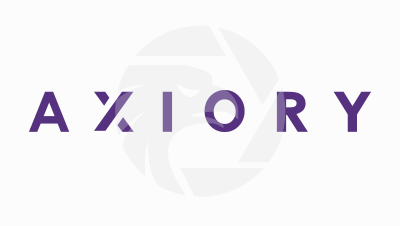
| Regulated Country | Regulated Authority | Regulated Entity | License Type | License Number |
 |
FSC | AXIORY GLOBAL LTD. | Retail Forex License | IFSC/60/255/TS/15 |
Axiory was established in 2011 as a foreign exchange and CFD broker in Belize. Foreign exchange, commodities, stock market indexes, and individual stocks are all available through this brokerage, which is licenced by the International Financial Services Commission of Belize (IFSC). The trading platform at Axiory is well-liked for intuitive design, quick execution, and cheap spreads. Trading newbies will like Axiory's micro accounts, which require only a $10 initial investment. Axiory's clients get access to a wealth of learning materials, such as webinars, articles, and video tutorials. The broker also provides round-the-clock assistance from a team of customer service representatives.
Here are some details about Axiory' s Nano account:
Miminum Deposit: $10
Spreads: From 0.3 pips
Commission: 6 USD/lot
Leverage: 1:400
Forex Trading Knowledge Questions and Answers
What are Micro Accounts?
Micro accounts are a type of financial trading account, typically used in the forex market, designed for beginner or small-scale traders.
They have the following characteristics:
Low Minimum Deposit:Micro accounts typically require a deposit that's a fraction of what's needed for standard or other account types. This affordability makes them accessible even to traders with limited capital, often with deposits ranging from just $1 to $100.
Smaller Trade Sizes:These accounts allow traders to make transactions in smaller lot sizes, often with a micro-lot size of 1,000 units of the base currency. This minimizes risk and is suitable for those who want to gain trading experience without risking large sums of money.
Lower Risk: Trading with smaller amounts in micro accounts helps protect you from significant losses. It's like adding safety nets as you learn the ropes of trading.
Flexible Learning: Micro accounts serve as your practice field for trying out different strategies and gaining real-world experience without emptying your wallet. It's like a risk-free classroom for traders.
Leverage:With some micro accounts offering leverage, it's akin to having a financial magnifying glass. You can control a larger position with a smaller chunk of cash. Just remember, it can supercharge both your potential profits and losses, so handle it with care.
New retail traders are advised to use a micro account if they are learning the basics of trading. Of course, A micro account can also be used by advanced or professional traders for testing a new strategy, an expert advisor (EA), or another automated strategy. With a micro account, one lot equals 1,000 units, and the minimum transaction size is ten units. This type of account, also known as a micro cent account, is not offered by all forex brokers.

What Advantages of Using Micro Accounts?
Micro accounts open trading's doors with low entry requirements and risk management, ideal for all traders, especially beginners. Join us in this exploration:
Low Entry Barrier:Micro accounts require a minimal initial deposit, typically ranging from $1 to $100. This low entry barrier means that individuals with even a modest amount of money can participate. For instance, if you deposit $10 into your micro account, you can start trading right away.
Risk Management:Smaller trade sizes in micro accounts help manage risk effectively. For example, if you're trading the EUR/USD currency pair with a micro account, a single micro lot represents 1,000 units of the base currency. If the EUR/USD moves in your favor by 50 pips, you could make $5, reducing the potential for large losses.
Learning Opportunities:Micro accounts provide an excellent platform for practicing trading strategies. Suppose you're trying to implement a new strategy that involves trading multiple currency pairs. With a micro account, you can experiment without risking substantial capital and gain valuable experience.
Flexibility: Traders can explore various strategies and market conditions without breaking the bank. For instance, you can test both short-term and long-term strategies on different currency pairs within the same micro account, adapting to changing market conditions.
Leverage Options:Some micro accounts offer leverage, which is like borrowing money to trade larger positions. For example, if your account offers 1:50 leverage, you can control a position worth $5,000 with only $100 of your own capital. This can amplify your potential profits, but remember that it also increases potential losses, so it's crucial to use leverage judiciously.
Cost-Effective: Micro accounts typically have lower transaction costs, with narrower spreads. This cost-effectiveness benefits traders who engage in frequent trading, as they can keep more of their profits. For example, a narrower spread in a micro account means you pay less when entering and exiting trades.
Psychological Comfort: The small trade sizes and limited financial risk associated with micro accounts reduce the psychological pressure on traders. This comfort allows them to focus on learning and refining their strategies without the fear of significant losses.
Portfolio Diversification:Micro accounts enable traders to diversify their investments across multiple currency pairs with smaller amounts of capital. For instance, you can allocate a portion of your micro account to trade the EUR/USD, another part for the USD/JPY, and so on, spreading your risk across different markets.
How do Micro and Mini Accounts Differ?
A micro account and a mini account differ in terms of contract size. Micro accounts are limited to 1,000 units of currency, while mini accounts are limited to 10,000 units of currency. Additionally, each account comes with different trading conditions and benefits. A larger account may, for instance, offer lower spreads and greater leverage.
Micro Accounts:
Trade Size:Micro accounts are tailored for precision with smaller trade sizes, often set at 1,000 units of the base currency. This allows traders to fine-tune their positions and risk management.
Minimum Deposit: They feature an entry-level minimum deposit, typically ranging from $1 to $100. This low barrier opens trading to individuals with limited capital, promoting accessibility.
Risk Level:Micro accounts offer a lower-risk environment, making them an ideal choice for beginners who wish to hone their skills without substantial financial exposure.
Suitable For: These accounts are a safe harbor for novice traders, providing an affordable and secure introduction to the world of trading.
Mini Accounts:
Trade Size:Mini accounts are a step up in terms of trade size, typically involving 10,000 units of the base currency. This affords traders a more robust trading capacity.
Minimum Deposit:They require a higher minimum deposit, typically between $100 and $500. This ensures that traders have a more substantial capital base to engage in trading.
Risk Level:Mini accounts carry a slightly higher level of risk due to their larger trade sizes, making them more fitting for traders with some experience under their belts.
Suitable For:These accounts are better suited for traders with a bit more experience and financial resources, providing flexibility but also demanding a higher level of risk management and strategy proficiency.
How do Micro and Standard Accounts Differ?
The contract size for micro accounts is 1,000 units, while the contract size for standard accounts is 100,000 units. Micro-accounts typically don't have a minimum deposit, while standard accounts generally require a few thousand dollars as a minimum.
Micro Accounts:
Trade Size: Micro accounts have smaller trade sizes, usually around 1,000 units of the base currency. These smaller trade sizes are ideal for precise risk management and are well-suited for beginners.
Minimum Deposit: They require a very low minimum deposit, often ranging from $1 to $100, making them accessible to traders with limited capital.
Risk Level:Micro accounts typically carry a lower risk due to smaller trade sizes, making them a safe and affordable option for novice traders who want to practice and learn without risking significant capital.
Suitable For: Micro accounts are best for beginners and those with limited capital who want to enter the world of trading cautiously.
Standard Accounts:
Trade Size: Standard accounts have larger trade sizes, generally involving 100,000 units of the base currency. This provides more substantial trading capacity.
Minimum Deposit: They require a significantly higher minimum deposit, typically ranging from $1,000 and upwards, necessitating traders to have a more substantial capital base.
Risk Level:Standard accounts carry a higher level of risk due to their larger trade sizes, making them more suitable for experienced traders who are comfortable managing higher stakes.
Suitable For: Standard accounts are designed for experienced traders with a comfortable level of capital and risk tolerance, looking to engage in more significant trading operations.
Choosing the Best Micro Account Forex Brokers
Furthermore, before opening a deposit with a Forex broker, the micro account gives the user the opportunity to personally assess that broker's reliability.
In addition, the Forex micro account lets you check the efficiency with which the brokers carry out orders, the speed in which their money is refilled or withdrawn, the support department's work, and other aspects related to the Forex market. While trading, you do not have to risk large amounts of money.
Lastly, the Forex micro account makes work much simpler by allowing conservative methods of establishing an optimal position size for subsequent openings on a standard deposit.
Forex micro accounts provide you with more trading options. By enabling the testing of interesting ideas and trading strategies on the Forex market, it greatly enhances the market. Both novices and experienced professionals are exposed to the minimum size of risk.
Consequently, many Forex brokers offer the option of using a micro account. Our portal helps you find the best Forex micro account brokers.
Forex Trading With Micro Accounts
In the forex market, there is a high demand for micro accounts from new traders. Since mini and micro accounts have remained important to the forex trading business, most brokers provide them.
Trading forex on a micro account allows traders to start trading with a smaller investment. Traders may also use micro accounts to test out new brokers while still reducing their risk.
Traders can open micro accounts with contract sizes starting from 1,000 lots as opposed to 100,000 standard lots. The advantage of this is that traders can refine their trading strategies with smaller deposits before expanding their accounts.
Previously, brokers offered more leverage on smaller micro accounts, but ESMA now limits leverage on major currencies for less-experienced traders to a maximum of 1:30.
Best Micro Forex Brokers for Beginners
For beginners who are looking for micro accounts forex brokers, we recommend XM.
The excellent educational resources of XM are both focused on the forex market while also providing information about trading strategies. Several licenses are in place across the globe for the broker, including British, Cyprus, Australian, UAE, and Belizean licenses.
Over 1,300 instruments are available on XM, including currency pairs, stocks, indices, precious metals, and commodities. For its Micro Account, it supports 11 currencies.
There is a lot size limit of 100 micro-lots. Moreover, all types of XM accounts are protected against negative balances.
Best MT4 Micro Forex Trading Platform
FXTM is our top choice for MT4 micro account forex brokers.
Since the broker only uses the MT4 platform for its Micro Accounts, FXTM stands out in the industry. Other account types are available through MT5 and FXTM Trader.
In addition to offering 62 currency pairs, FXTM also offers CFDs on commodities, stocks, indices, and cryptocurrencies. Furthermore, it accepts four fiat currencies (USD, GBP, EUR, and NGN) as base currencies. A single standard lot is the maximum volume a trade can be for a position. Instant execution is available.
There are four jurisdictions that regulate FXTM: the UK, Cyprus, South Africa, and Mauritius.
The Differences Between Various Forex Accounts?
Many forex brokers offer multiple trading accounts for traders to choose from, then here comes the problem: how to choose a forex account?
Trading accounts varies typically based on the trade size you want to make, so different accounts have a different minimum deposit amount ($100 or even less). The main forex account types are as follow:
Mini/Micro Accounts
Suitable for traders with a small number of funds and can help them control risk. Standard Accounts-they usually requires a minimum initial deposit of around $100-$500, chosen by most regular traders.
VIP/Professional Accounts
They are suitable for professional traders or institutions. VIP accounts often have a high minimum deposit requirement (about $10,000) and allow regular quantities to be traded. These accounts are often ECN accounts too.
Swap-free Accounts
Also called Islamic accounts, for they are often used by Muslim traders who cannot incur interest fees due to their religious beliefs.
What is the Best Leverage for a Micro Account?
Brokers typically offer 1:500, but some offer 1:1000 and even 1:2000. Risk management and its strict application remain the most crucial aspect of leverage.
How to Choose Forex Accounts?
Different accounts with different. Before opening up a trading account, you should figure out the following questions:
How much do you want to deposit? You should keep in mind that it is not wise to trade with money you cannot afford to lose.
What is your risk tolerance? If you are a conservative trader, you may choose a micro account you can trade micro-lots. But if you want to trade more aggressively, you may better choose a standard account.
Do you need any advanced tools? Many forex brokers offer their best trading tools to their professional clients, which may include innovative news analysis or access to an extensive range of indicators.
Once you can define what kind of trader you are, your trading goals, and your risk tolerance, you can know what account suits you most.
you like

Best Forex Brokers for Beginners in Nigeria for 2024
Select the top forex brokers for beginners in Nigeria from many companies to ensure a safe trading environment.
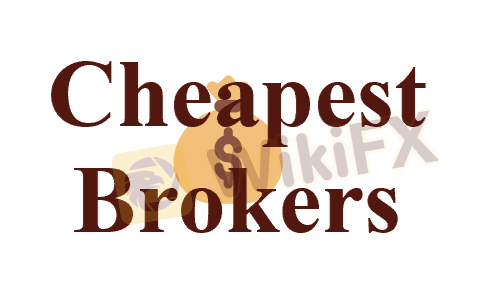
Cheapest Brokers 2024 | We List the Best Brokers with low fees
Slash forex trading costs: find the cheapest brokers, avoid hidden fees, and boost your returns!
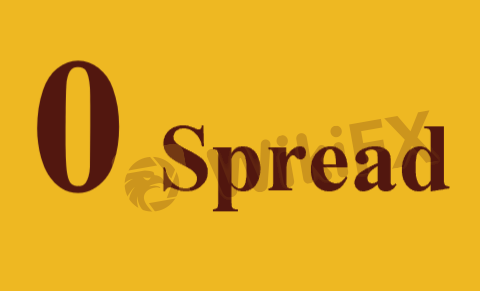
Best Zero Spread Forex Brokers in 2024
Dive into zero-spread forex trading: explore its perks, pitfalls, and discover top brokers to optimize your journey.
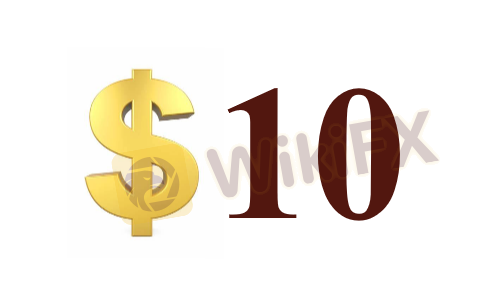
7 Best $10 Minimum Deposit Forex Brokers in 2024
Ultra-affordable Forex trading starts here! With only $10, join the Forex market with these seven champion brokers.


